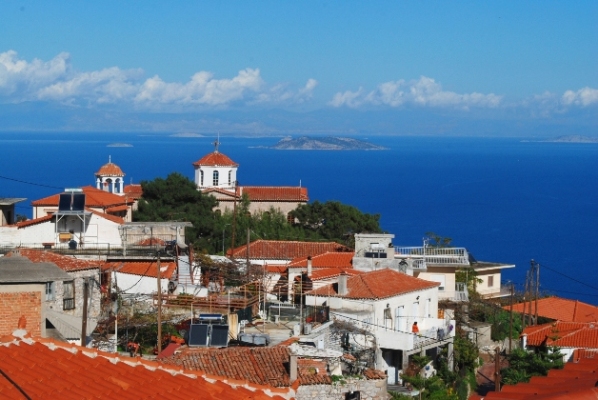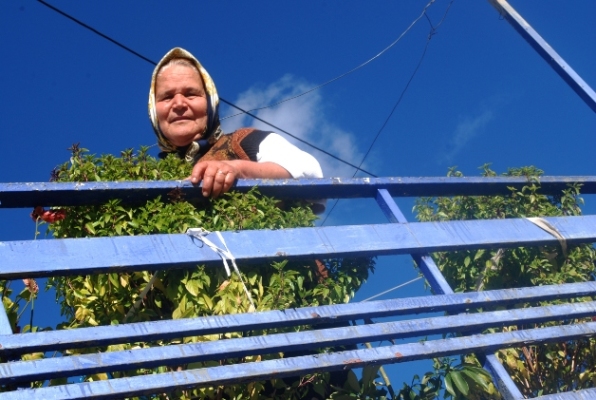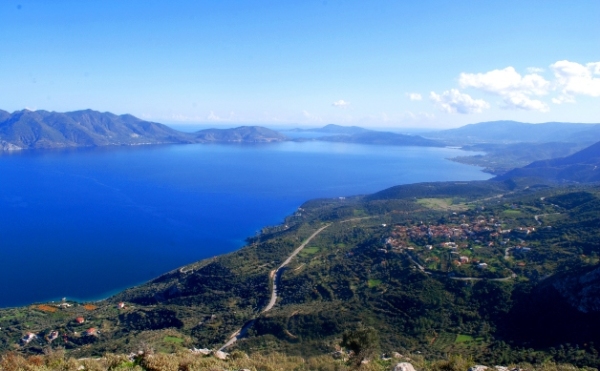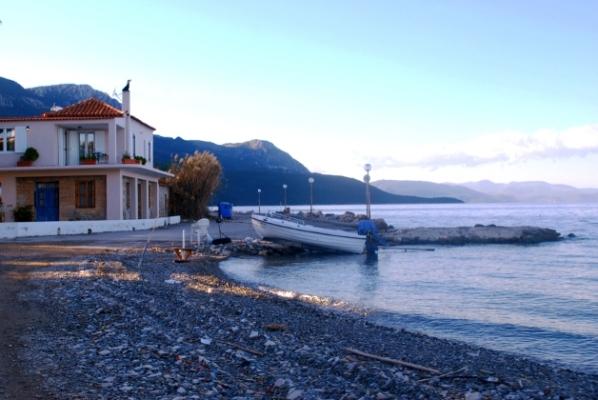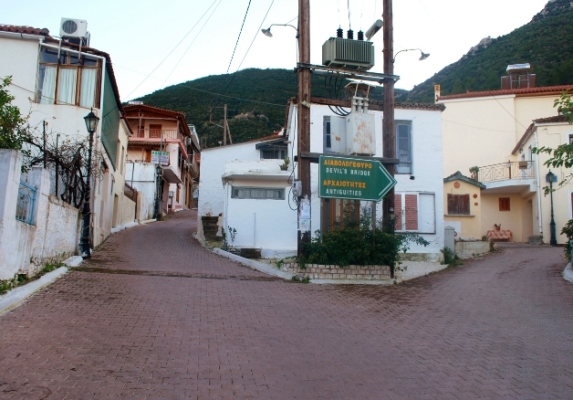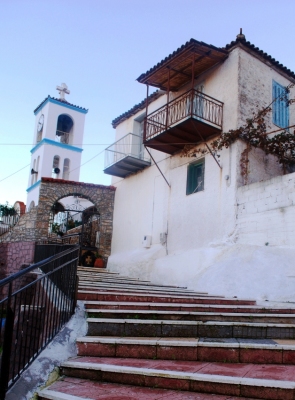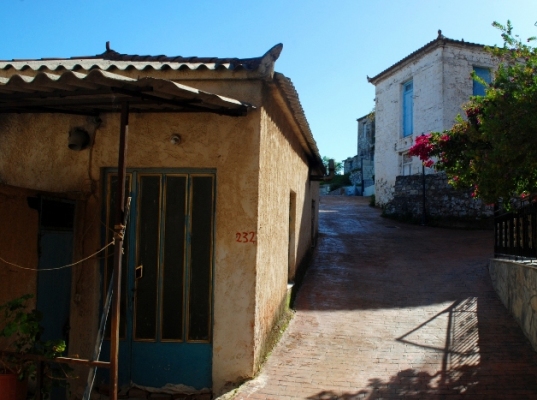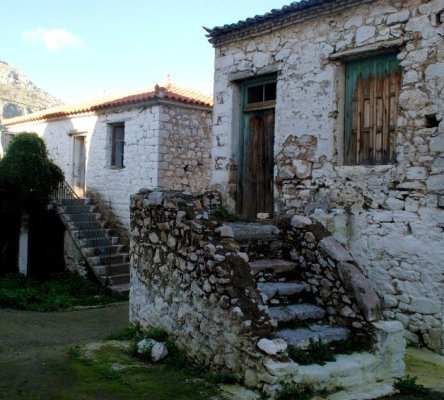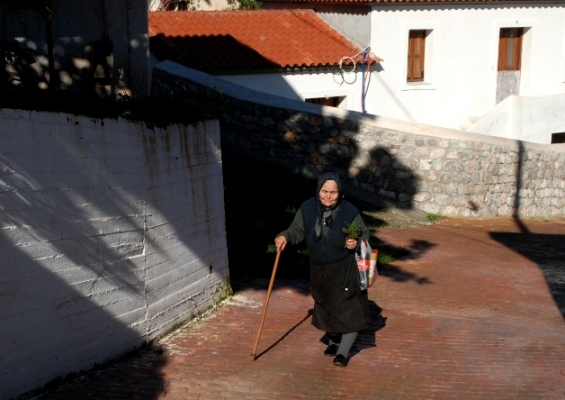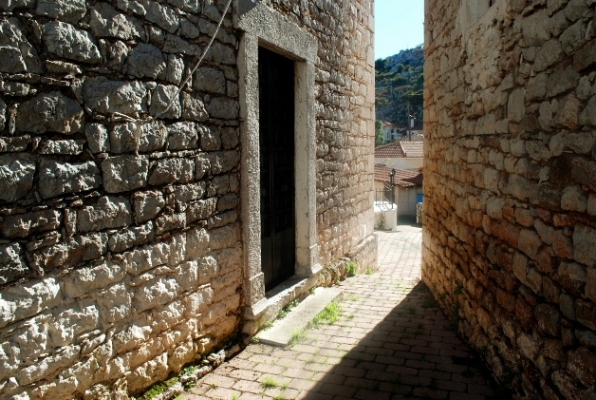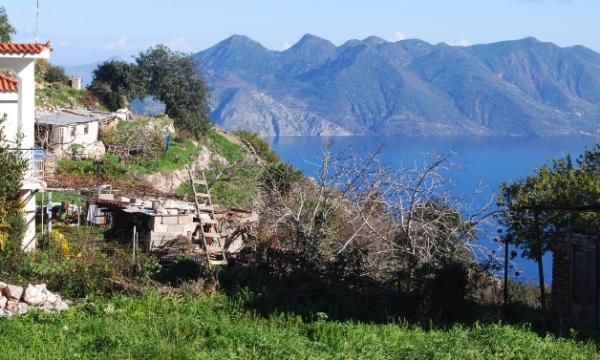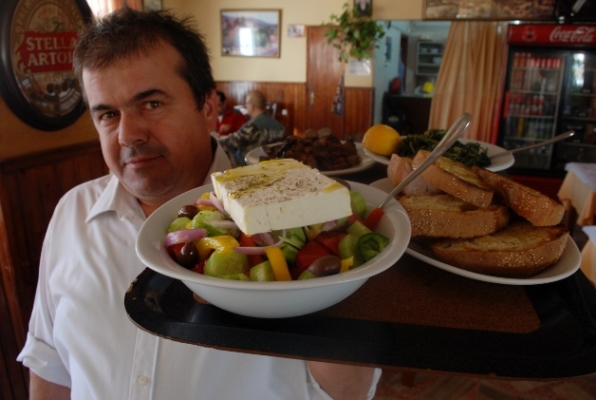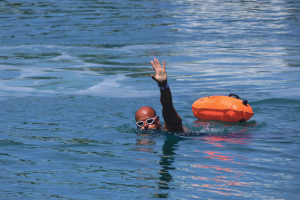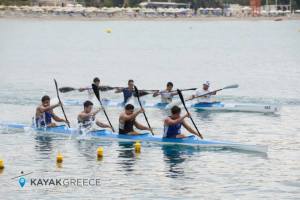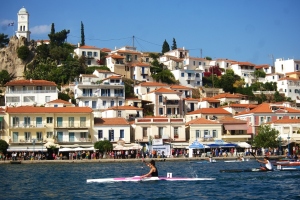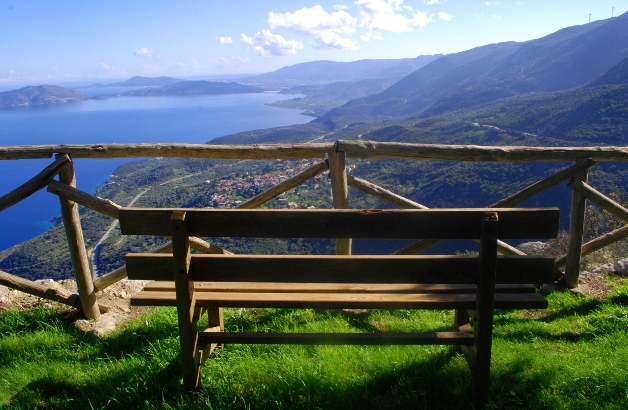
On a clear day you can see forever—and sometimes a lot further than that when your perch is atop the Aderes range overlooking the Saronic gulf.
The mountains rising behind Galatas, on the Peloponnese shore across from Poros, offer a spectacular view over land and sea, across the strait separating the island from the mainland. It’s the land where Theseus, the founder of Athens, was conceived and born. And while this mythical king’s origins are less widely known than his later feats, the land exudes a breathtaking power.
When choosing a destination, many visitors founder between mountain or sea. Trizina eliminates this dilemma as it offers both—the endless horizon of the sea edged by fertile plains sloping skywards to form an imposing massif. From the Methana peninsula to Karatzas, and from the village of Vlaheika to the island of Poros, the former Trizina eparchia is a microcosm of Greece. It’s a blessed land, with fertile soil that nurtures citrus groves and olive trees. Trizina olive oil has Protected Designation of Origin status and the area’s 900,000 trees produce some 3,000 tones of fine olive oil a year.
The road network in the Trizina-Methana municipality connects some thirty villages and settlements, as well as Galatas as Loutropolis. Hidden from view in the folds of the ridge’s silhouette that looks like a sleeping maiden from below, the mountain villages offer a sweeping panorama of the sea. And while the road linking Epidaurus to Kalloni has shortened the distance to Athens for travelers to and from Poros, it has deprived them of this view and these villages of the passing traffic.
Setting off from Galatas, follow the road as far as the Ayios Georyios settlement, then right towards Trizina, home of Theseus and site of the Third National Assembly. The modern village, which is built amphitheatrically over the plain, lacks a specific style, yet has a special feel. Old-timers still refer to the village as Damalas, its name as a small medieval barony. The village attracts a steady stream of visitors thanks to its small archaeological site and the famed Diavologefyro, or Devil’s Bridge.
The next village on the route is Evangelismos, which sits some 270 meters over the Psifta wetlands. It, too, is known to locals by an older name, Skapeti, which means “hidden”. Kalloni, about twenty kilometers from Galatas, has a population of 828 and stretches from the coast to the foothills of the Aderes range. The ascent up Ortholithi, the massive peak known as “standing rock”, begins at the Kalloni-Epidaurus intersection.
The air is fragrant with wild herbs like savory growing along the road. The first village on this route is Dryopi, with its stone cottages with the slightly elevated front entrances. The pine-sheltered square opening off a small church dedicated to the village’s patron saint, Ayios Haralambos, is known as the “balcony of the Saronic Gulf” for the vantage point it offers.
Next is Ano Fanari—Trizina’s northernmost village perched at an altitude of 470 meters above the sea. Thanks to its dry climate and fresh air, it was favored by people suffering from asthma or other respiratory diseases. Exploring the area around the village yields a small trove of treasured sights: Geometric and Roman ruins, remains of a Classical-era kastro that was later incorporated into a Frankish fortification, and Kokkinovrahos—the entry to the “Gorge of Eros” where, according to mythology, Theseus’ son Hippolytos was killed while fleeing to escape vicious rumors spread by his stepmother Phaedra. The small church of Ayii Anargyri at the edges of a pine grove offers another excellent view over the gulf.
The descent leads through the Foussa plain to Karatzas, a village that also figures prominently in local history. Sights include the ruins of a Venetian castle where fragments of Mycenaean shells were found. Nixori, a small village just a few kilometers away, was the site of an execution of Greek fighters by the Nazis in 1944. But Karatzas is best known for a local taverna: Batzavalis. Diners flock here from the surrounding area, including Poros, as well as Athens to sample the barbecue and wine—all home-made with fresh, local ingredients.



